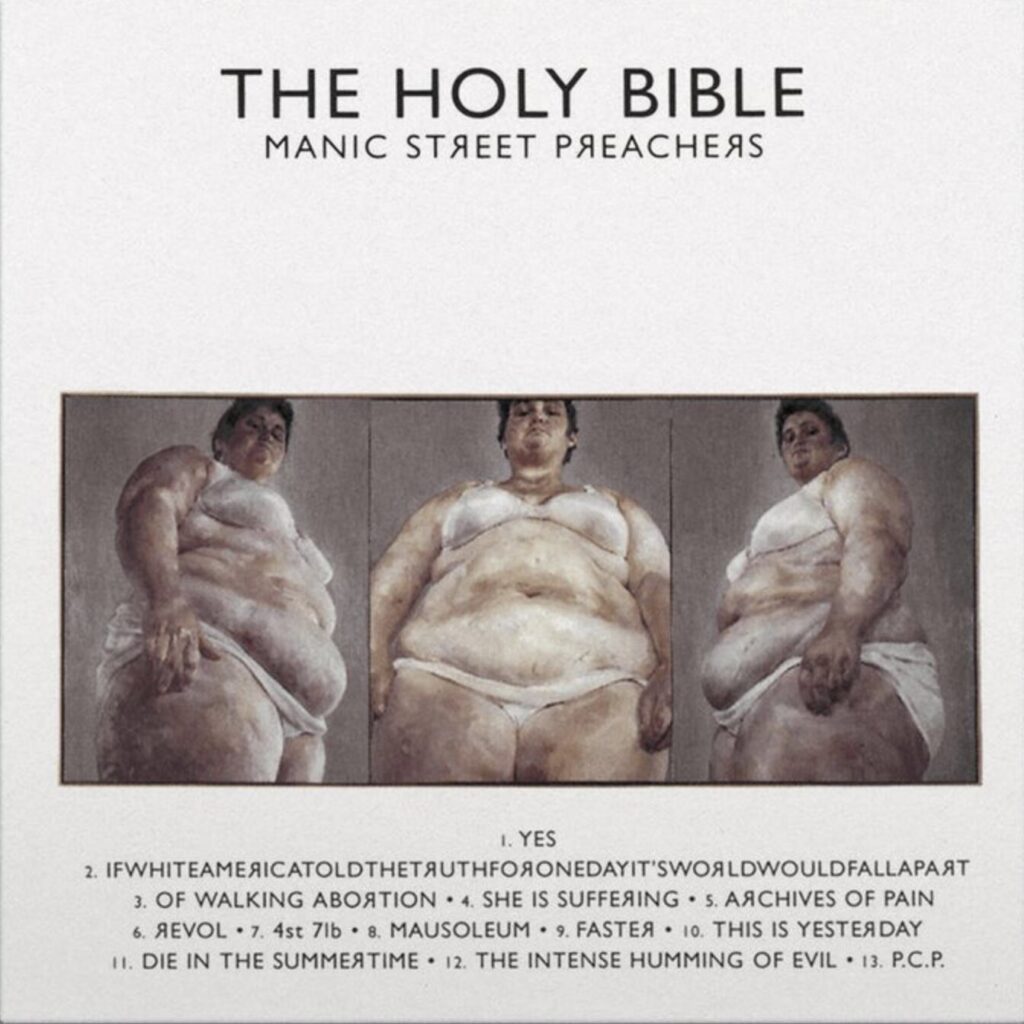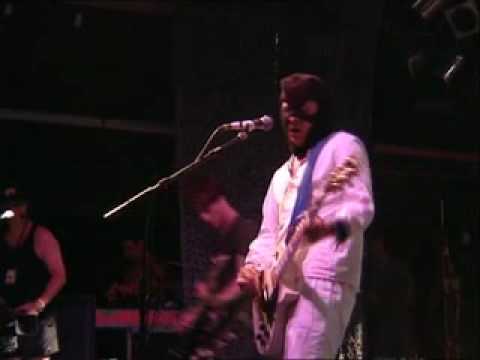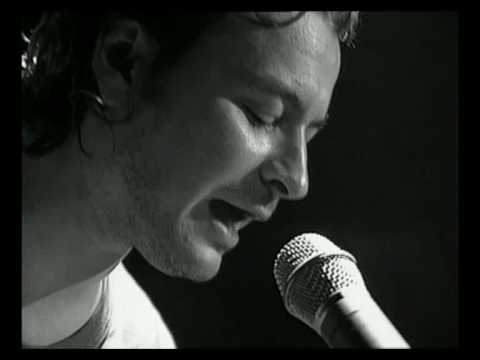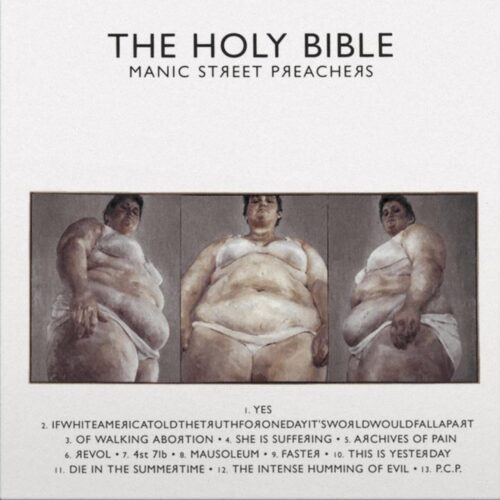“Depression can’t be reduced to the psychological field. It questions the very foundation of being. Melancholic depression can be understood in relation to the circulation of sense. Faced with the abyss of non-sense, friends talk to friends, and together they build a bridge over the abyss.
“Depression questions the reliability of this bridge. Depression doesn’t see the bridge. It falls off its radar. Or maybe it sees that the bridge does not exist. Depression doesn’t trust friendship, or doesn’t recognize it. This is why it cannot perceive sense, because there is no sense if not in a shared space.
“If we consider depression the suspension of the sharing of time, as an awakening to a senseless world, then we have to admit that, philosophically speaking, depression is simply the moment that comes closest to truth.”
Franco Berardi – Precarious Rhapsody: Semiocapitalism And The Pathologies Of The Post-Alpha Generation
It’s only truth; it’s the truth. That’s all.
(We all understand quite clearly, really, that depression is perfectly logical. In at least one sense, and maybe more, depression is not a mood; it’s knowledge. And the capacity to transcend that knowledge – to laugh and roll your eyes and think, “Cheer up mate, it might never happen” and to get on with things and to forget – that’s a very particular kind of magic. And if one day you wake up and you don’t believe in magic… well, sometimes that’s all it takes.)
There’s plenty on this album you could describe as misleading, in one way or another. Disproportionate, overstated, skewed. But none of it is untrue.
(And no one will take care of you, because no one really cares. Even in the Britain of 1994, there were pretentions to human kindness when it came to perceptions of the mentally ill. People spoke of others’ “problems” and strove, vaguely, to “understand” them. In 2014, the mentally ill are a giant drag, a drain, a sponge; takers, useless eaters, nudged increasingly firmly towards the inevitable by successive governments, distrusted or resented by peers who suspect they’re malingerers, or that their supposed torments are just everyday stressors, poorly dealt with – weakness, if you like. Why can’t you get a grip, like we had to? Look at all those famous, successful depressed people. They’re doing all right for themselves. What’s your excuse?)
The album title, I suppose, could be a half-sarcastic reference to the truth contained within. All those themes of cruelty and suffering, victimhood, personal identity under duress. It’s a truth passed on without interpretation. It’s only the truth.
(What do you get? Facile entreaties to “reach out” to your friends, imagined as selfless emotional benefactors rather than ordinary human beings who are, in reality, sick of your gloom. Neurotoxic antidepressants and ten weeks of inane assurance from a well-meaning hippy in a carpeted room. A wilful and convenient blind eye turned to any relevant social, political or economic factors – “I dealt with depression,” chirp the listicles by 23-year-olds with double-barrelled names. “Here’s how you can, too.” Tip one, I guess: don’t live in the ringing silence of a chilly, damp and insecurely-rented shithole, hearing the footsteps of the upstairs pachyderm, feeling hunted, feeling hungry, knowing you’ll never make a living again, and will never be forgiven for that. Tip two: make yourself more useful to the worst people in the world – or else.)
The truth… it’s a motherfucker.
(And there’s nothing sacred or mystical or nourishing about this kind of pain. Yes, it can be revelatory – but what it tells you is not useful information. Plenty of pop music has set off down this road. Almost all of it has then turned back. You reach a certain point and you realise how broad and how deep the abyss really is. And the bridge does not exist.)
All this is just one part of a bigger, wider truth addressed in sections on The Holy Bible, one of the most astonishingly inventive and ambitious albums of the 1990s. But realistically, there’s nowhere else to start. And realistically, there’s nowhere else to finish. This probably isn’t going to be much fun.
The Holy Bible is 25. Manic Street Preachers, soldiering on, have not allowed this fact to pass them by. They released an “anniversary edition” of the album – to go with the one they released ten years ago – then embarked on a short tour of Britain, playing all those dense and horrified songs, together, for the first time since… well, since they were a different band, trashing the stage of the London Astoria, Christmas 1994 – grand finale of the single most emotionally exhausting concert I ever saw.
It’s tempting to sneer. I mean, what is this? Yet another box set reissue, priced beyond the reach of people to whom the band are meant to speak. Yet another ancient album played in its entirety, as though suddenly everyone there will be able to fit into their old jeans again, or cease to be a parent, or a bore, or a disappointment to themselves. One more retreat; one more defeat. Those of us who were, in 1994, intrigued by the Manics as a force, a bug, a complex and contradictory presence – a band who did things differently, and did not do other things at all – shouldn’t we be shocked and appalled or something? The crass exploitation? The nostalgia?
Well, not really. For one thing, every reckless claim or promise the Manics ever made contained the launch code for its own heroic or unheroic failure. That was part of the point. Besides, as Joan Robinson said, the misery of being exploited is nothing compared to the misery of not being exploited.
And the fact is, there’s something distinctly unusual about this particular trip down memory lane. The truth – of course – is that The Holy Bible can only really be understood in the context of the psychological breakdown experienced by Richey Edwards; Richey James, as he called himself then. I haven’t played the album all that much in the last 25 years, considering how much I like it – got my own reminders and my own damn ghosts. For the members of the band, one would suspect that’s more than doubly true. Watching Manic Street Preachers play The Holy Bible, then, knowing what it meant and what it still means, being transported back to where you were and how you felt when it was new, and it was the world to you… that’s nostalgia? I dunno… that’s not the word I’d use.
I don’t believe for a second that they’re doing this for the money. Equally, I doubt that anyone attending the shows will be there to recapture their magical, carefree youth. This is not about moving backwards; it might possibly be about moving forwards. Maybe it’s just something that has to be done. After all this time… perhaps it’s time?
The trouble was, Richey was either dismissed as a joke or followed as a leader – both of them terrible, terrible ideas.
I only met the man once. We exchanged polite hellos, and that was that. I’m not an expert. I wasn’t a friend. I just knew what everyone knew. Simultaneously naïve and jaded, brutalised and blessed, he was all too obviously headed for some kind of personal cataclysm, but what was equally clear was that the source of that was also the source of this – this sudden eruption of magic, this lightning-fast articulation of broken perspectives, this acceleration, those tangled and terrifying lines scrambling over each other to make themselves heard, as though time were running out. Obviously it’s tempting for people to try and make something more of this, as though the achievement were not, in itself, enough. Few absent rock stars are so easily mythologised. Richey was young and beautiful, his words were tantalisingly oblique, his style unique; the Richey Myth is easily understandable, as well as immovable.
And obviously, it’s absurd and insulting. Rock & roll? Oh, please. The fact that Richey expressed himself through rock & roll – the simultaneous rejection, embrace and extension of rock & roll – only matters when The Holy Bible is playing. What the Richey Edwards story “tells us” is that sometimes human beings end up in places where rock and roll means nothing, or very much less than nothing, and to lose sight of that for a second is shameful.
Then again, I don’t really know who fell for this and who didn’t. I couldn’t even say, this far along, who got things right and who got things wrong. All those quiet young girls with big mad eyes, in long-sleeved leopard print – who can say to what extent the Manic Street Preachers were good or bad for them? Probably no one was saved, or ruined. What I do know is that anyone who used this album or this band to validate their personal failings was badly missing the point. What makes The Holy Bible stand out from all those other musical testaments of pain, before and since – aside from the fact that it’s so fantastically good – is that it doesn’t wallow. What makes The Holy Bible so worthwhile (and in the end, so poignant) is its fanatical defiance, its shivering dignity, its absolute rejection of romance, the way it confronts its truths unflinchingly, as though it might somehow overcome them. The Holy Bible‘s response to its own reality is not to withdraw, but to summon a huge, sustained and near-miraculous outpouring of energy.
But as any psychiatrist will tell you, depression plus energy equals big, big trouble.
Up until ‘Faster’, the lead-off single from The Holy Bible, Manic Street Preachers were a fantastic thing, rather than a fantastic band. There were some great early songs, of course: ‘New Art Riot’ (intriguing insurrectionary bubblegum). ‘Little Baby Nothing’ (a beatification of the porn star and pin-up, with sexual politics that were practically Cubist). Most famously, ‘Motorcycle Emptiness’ (The Society Of The Spectacle reimagined as a power ballad).
But mostly, they were interesting and valuable – to me, at least – as an antidote to the early 1990s. In that climate of collusion and wilful ignorance, this was a band who thought very seriously about what they were doing, and were themselves worth thinking about. Worth listening to? Yes, but only sometimes. Roughly half of Gold Against The Soul, their album from 1993, was brushed, restless rock, quite gutsy if not exactly groundbreaking, fiery and full of feeling; the other half was rubbish.
But ‘Faster’ was a four-minute slide along the third rail, utterly unprecedented. Preview tapes of the album showed the full extent of this dark renewal: the old sounds – LA metal and UK punk – had given way to something unfamiliar, tense, unnerving, vortical. In place of the guitar heroics were explosive darkness and suffocating pressure. And the quiet terror which had been growing steadily in the band’s lyrics for the past two years was now, apparently, out of control.
As always, the music was credited to James Dean Bradfield and drummer Sean Moore, but it was Bradfield’s contribution which clearly signalled the change in tack: the sheet-metal-cutter tone, the skittish riffing, the new approach to layering and texture, the sharp corners, the brutalism. Forty-five seconds in, it was clear that now the Manics understood that subtlety isn’t the opposite of power. On any of their previous records, that first chorus of ‘Yes’ would have been decked with overdubs, massively overlit, pumped up with Mutt Lange gas. Here, all that’s added is a flat and strangely distant guitar part; the extra force is generated by one small shift in emphasis. During the bridge, as Richey’s self-determination flutters like a tattered flag, Bradfield strums a series of proudly ringing chords… but the bass guitar drops down to a murmur, creating a sense of optimism with no foundation, an insecure euphoria; mania.
The Holy Bible is generally thought of as Richey’s album, and in one sense that’s correct. But in another, it’s about collaboration. You only have to glance at the lyric sheet to understand that: if whoever had written those words – not necessarily Richey, but anyone – had also composed the music, the results would very likely have been totally unlistenable. It’s this awkward convergence, this extra step, this push-and-pull between those twisted lines and Bradfield’s attempts to make musical sense of them which stops The Holy Bible sounding monolithic or self-indulgent (this could have been The Wall on speed).
There were a fair few doomy American rock bands around at the same time, covering vaguely similar ground – the Manics were listening to a lot of them – but they sounded heavy, grandiose, smacked out. The Holy Bible has what British groups always used to have over everyone else: a kind of mobility, a liveliness, an aversion to wasted space. It’s still hard rock, but it’s hard rock coarsened and enriched with the urgency of post-punk and the mordancy of metal. Aside from anything else, it suited the band a whole lot better: the Manics were always capable of generating power, in a seething, pummelling kind of way, but in strict stylistic terms they never really rocked. Sean’s drumming was too rigid for that, Nicky’s basslines nailed to the beat – they always sounded like punks at heart. The Holy Bible finds a way to harness that and elevate it. They’d never sound this sharp again.
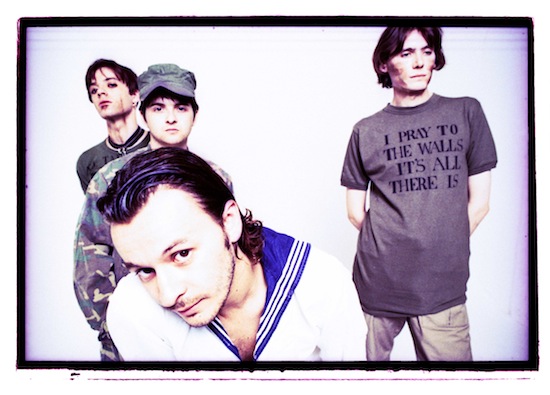
And so, quite suddenly, the Manics’ lyrics were more than what they’d always been: furious scribblings, side-splitting slogans, duff syntax without metre, shoehorned into trad-rock songs which buckled and bent to accommodate them. The words on The Holy Bible are more tangled and incomprehensible than ever – each line is a preposterous pile-up of syllables, a badly-packed suitcase which Moore has to sit on so Bradfield can do up the zip – but they’re vastly better, stronger, more vivid. That occasional clumsiness, that extraordinary phrasing, it’s part of what makes them work: they’re never slick, or glib, or distanced.
Some of these lines are plainly ludicrous (“King cigarette snuffed out by her midgets – by her midgets!“). Some of them are almost profound (“I know I believe in nothing but it is my nothing”). Others are just appallingly beautiful (“I want to walk in the snow, and not leave a footprint” – from ‘4st 7lb’, the album’s finest and most frightening song, which interprets anorexia as absence, and interprets that as escape). What they are not is cliched or boring. And whatever else we might think of rock & roll, it can validate pretty much any ideas you throw at it, just so long as those ideas are neither cliched nor boring.
Two years later, Nicky Wire would complain to me that “On The Holy Bible it became so inward looking, too inward looking for my liking, to be honest. It was never the intention to carry on in that vein, but now we’re destined to be frozen in time…” True, almost all these songs view their subject through a prism of disquiet, but only three or four are purely introspective – it just so happens that they may be the best. Even at their most insular, Richey’s lyrics have nothing to do with the stale language and stock metaphor of most pop lyric writing. Much of ‘Faster’ may be navel-gazing gibberish, but the desperation and ferocity of those lines is unmistakable and unforgettable. ‘Yes’ may draw ludicrous, old-fashioned parallels between rock stardom and prostitution, but it’s redeemed by its blinding pain and the breathtaking savagery of its images: “Just an ambulance at the bottom of a cliff.”
(I say “Richey’s lyrics”, by the way, because that’s what most of them are. Nicky, ensconced in newlywed bliss and a temporary creative drought, wrote lyrics for one song (‘This Is Yesterday’), half of another (‘Ifwhiteamerica…’) and beyond that contributed not much more than a few lines here, a title there. It’s not a myth; lyrically and in terms of mood, The Holy Bible is Richey’s vision.)
Pop music back then was full of tupenny-ha’penny poets who just wouldn’t understand that whatever else pop music may or may not be, it’s still show business, and feeble earnestness won’t be enough. Pop music will do half the work for you, but you have to meet it halfway. You have to understand it, and you can always spot the ones who don’t: they overdramatise, try too hard. The sound swells up with self-importance, the singer booming like a bad king – unprocessed rock & roll angst is as palatable as neat lime cordial.
The Holy Bible doesn’t make mistakes like that. The Manics understand their medium so well, they rarely sound less than totally convincing. Out of the babel and the noise comes a truth, or a set of truths, which have seldom been expressed so abstractly yet with such intense immediacy… except maybe in late Rothko.
The early Manics’ greatest strength (and part of why they were favourites with a certain kind of British pop critic) was their odd ability to somehow suggest an intellectual space inside the music, deep below the words, where signifiers met from many angles, where every powerchord, every pose meant something else, subverting all that came before… in some way or other. Neither they nor their fans in the press ever fully articulated how this was meant to work, but it seemed to work anyway. They were hypocrites, “culture sluts”, playing a dead form of music they wished to destroy, saying yes to everything, hacking away at their own feet as they climbed the ladder – all that kind of thing. For those of us who’d half-read all those books we were meant to have half-read it was cracking stuff, not least because the alternative was Kingmaker. Anyway, this dual insistence on gestures and the fundamental unreliability of those gestures was a fantastic get-out clause, allowing them to seem weighty and vital even when their music was weak, their lyrics overwrought and slightly comical. I absolutely loved them.
On The Holy Bible – where their music was not weak, and their lyrics were anything but comical – a deeper and more serious version of that same ambivalence allowed them access to the kind of issues which, generally speaking, no band should even contemplate writing about, issues no pop song could ever contain. Because these songs do not pretend to contain the issues – quite the reverse – and because events had now conferred a certain gravitas upon them, the Manics got away with it. Two songs in particular address the unaddressable: ‘Mausoleum’ and ‘The Intense Humming Of Evil’.
Exposure to the crushing detail of the Holocaust usually triggers an immediate, instinctive, seemingly contradictory response. That is to say an enormous humility, coupled with a sudden intense awareness of one’s self, which feels almost shameful until it dawns that this is your humanity asserting itself; the only conceivable way to comprehend, or to protest. But there’s something disturbingly cold about these songs. ‘Mausoleum’ throbs with an appalled rage which never resolves into anything more profound; ‘Intense Humming Of Evil’ begins as a threnody, then drifts to a burnt-out distance: “Lives that wouldn’t have changed a thing / Never counted – never mattered – never be / Drink it away / Every tear is false.” Neither song is shallow or sensationalist, both are thick with loathing – and yet both feel all the bleaker for their lack of a deeper emotional response.
The lyrics grew from a band visit to Dachau, which seems to have affected this dangerously depressed young man in precisely the way you’d expect. But there seems to have been a more general fascination with Fascism, and totalitarianism generally, on Richey’s part; knowing what we know about the man, it may not be much of a reach to suggest that what really intrigued him about Fascism was its focus on discipline, purity and control, its celebration of the triumph of man-made systems over nature. One assumes he was just intrigued, rather than attracted, but then it’s not uncommon for those in distress to spend an unhealthy amount of time exploring the shadows of their psyche. It seemed unnervingly easy for Richey to sympathise with wretches like Valerie Solanas (not just with the title ‘Of Walking Abortion’, but in that lyric’s near-psychopathic misanthropy); in several interviews, he spoke approvingly of aspects of sharia law. This was less a political standpoint than the outcome of an internal argument, heard most clearly on ‘Archives Of Pain’, an awed hymn to capital punishment: “Don’t be ashamed to slaughter / The centre of humanity is cruelty / There is never redemption…”
One of the album’s clumsier lyrics, ‘Archives Of Pain’ is a gruelling experience nonetheless, a song of hope that’s long since turned to despair, then just kept going: “Sterilise rapists / All I preach is extinction.” (Once again, the music is extraordinarily sympathetic to the tone of the words – Bradfield’s riffing is furious but almost frictionless, lashing out in all directions and making contact with nothing; Wire’s dog-black bassline is pitiless.) The killers listed in that blazing, swerving chorus gave in to their deepest demons; to a man remaining virtuous in a private hell, nothing could be more appalling, more deserving of remorseless justice. The two traits which come across most strongly in Richey’s Holy Bible songs are contempt for moral weakness, and that austere sense of virtue, that ferocious strictness with himself. This self-penned Bushido code is detailed in ‘Judge Yr’self’, the last song he wrote with the band, finished off the following year and finally released in 2003 on the compilation Lipstick Traces. In this short, blunt lyric, Richey’s philosophy is pared to the bone: “Heal yr’self – Hurt yr’self – Judge yr’self.”
Though a very long way from being their best song, ‘Judge Yr’self’ is an important one, I think, since it’s a reminder of the rigour which characterised Manic Street Preachers in the mid-1990s, which followers and detractors alike would often miss or misinterpret. But it’s also a disturbing and disordered song about self-rule through self-mutilation. With its stark and wildly staring music, its Nietzschean stand-off between Christ and Dionysus, ‘Judge Yr’self’ sounds like what it is: the product of a mind running out of road. Could things have gone any further than this?
They didn’t. That wasn’t what happened.
What does it all mean, then? What was it all for? Time’s moving faster, and crows are getting bigger and blacker – twenty years, it’s been. [Thirty years]! My God! How can so much time have been wasted?
(I was living like a pig when I first heard The Holy Bible. In the wrong place at the wrong time, floundering; all upheaval and fury. I’ve been playing it over and over again this last week or two, and here I am: face down on a mattress, slipping in and out of consciousness in the middle of the afternoon… living like a pig. First time round, it seemed vaguely possible that there would be a point to feeling like that. But we were all young and beautiful then. This time round there’s only truth; the truth. And it’s a motherfucker.)
The sun goes up, the sun goes down. It’s all the same to me.
(The logic of The Holy Bible is the pure and colourless logic of depression. It’s hard and precise, intensely alert, acute, compressed, reduced. But then we listen to music for a number of reasons, and not all of them are good ones.)
What does it all mean, though? What was it all for? Part of me wants to say this: nothing. That’s the answer. That’s the point. Nobody was saved or anything. The Holy Bible exists to bring you the honest truth, the only truth. The truth you already knew, but had convinced yourself might not be the truth. All your questions have the same answer, which happens to be the truth, and the answer is nothing.
And another part of me wants to say something else, because another part of me listens to The Holy Bible and hears something else… something, or someone. Someone who was really here, and it was terrible, but they were here; they happened. And what they left behind can still astound and chill, and tint the empty space with the suggestion of something that isn’t love, but feels about the same.
Nothing, or the opposite of nothing. One of them must be the truth.

